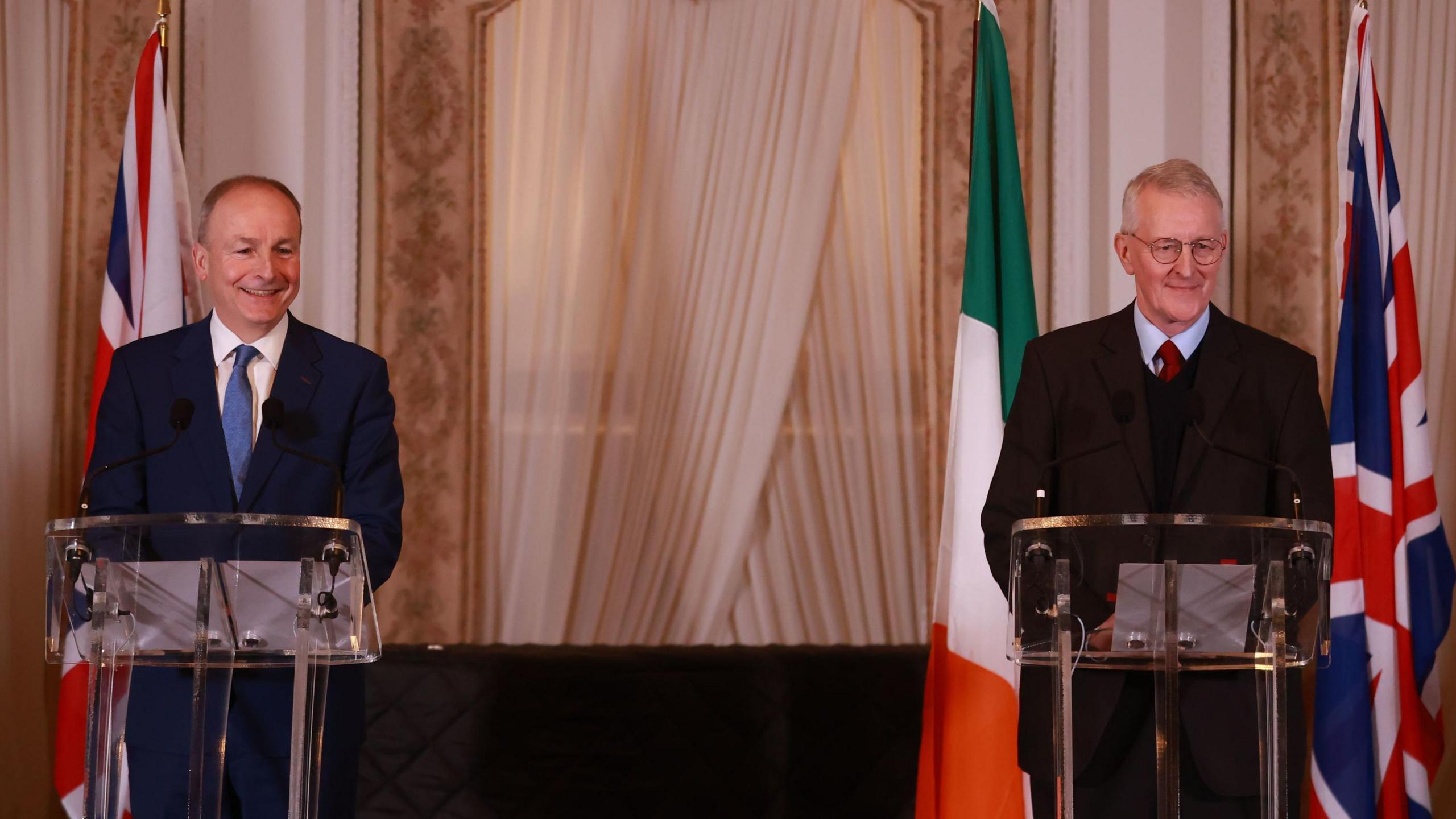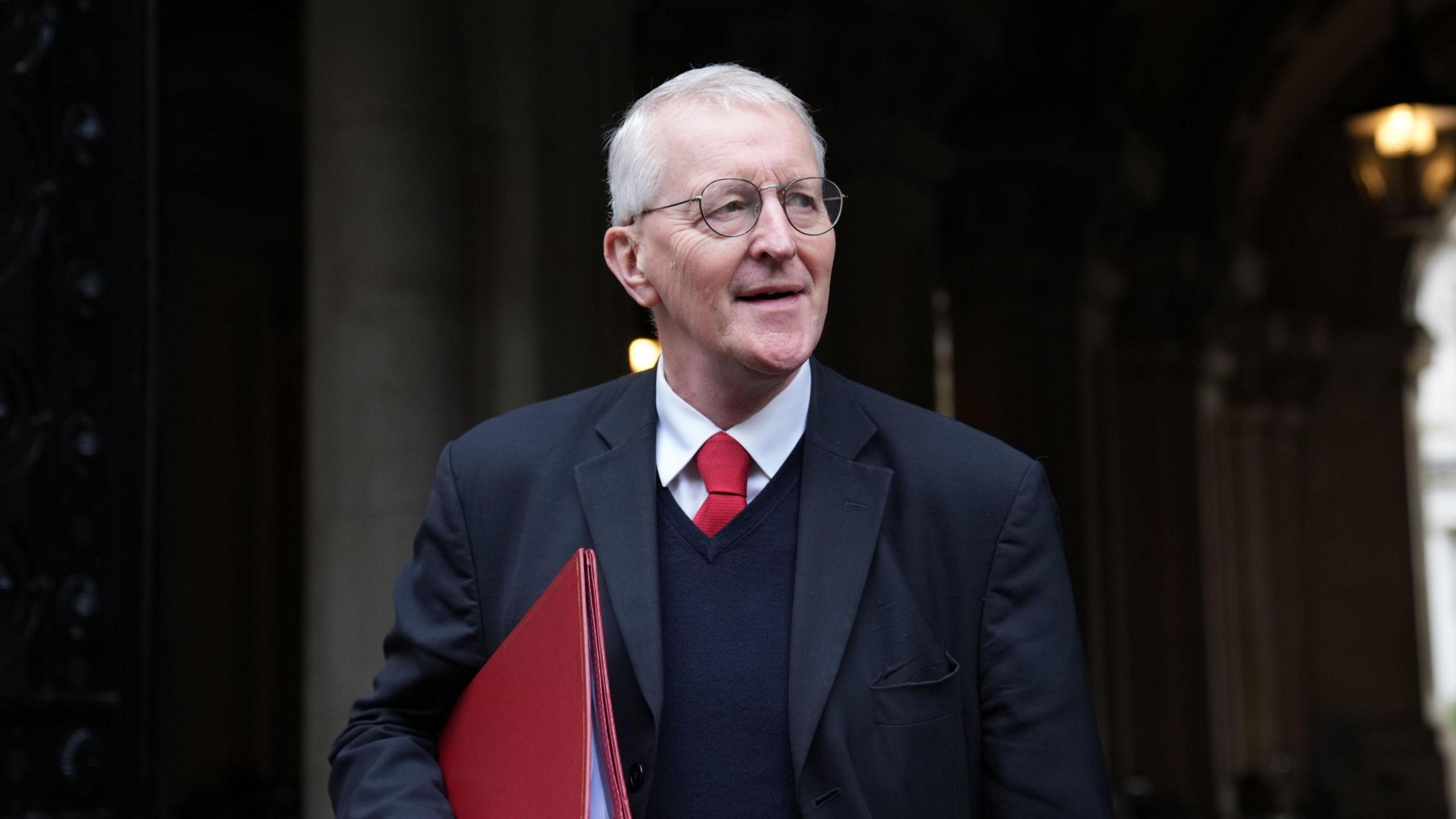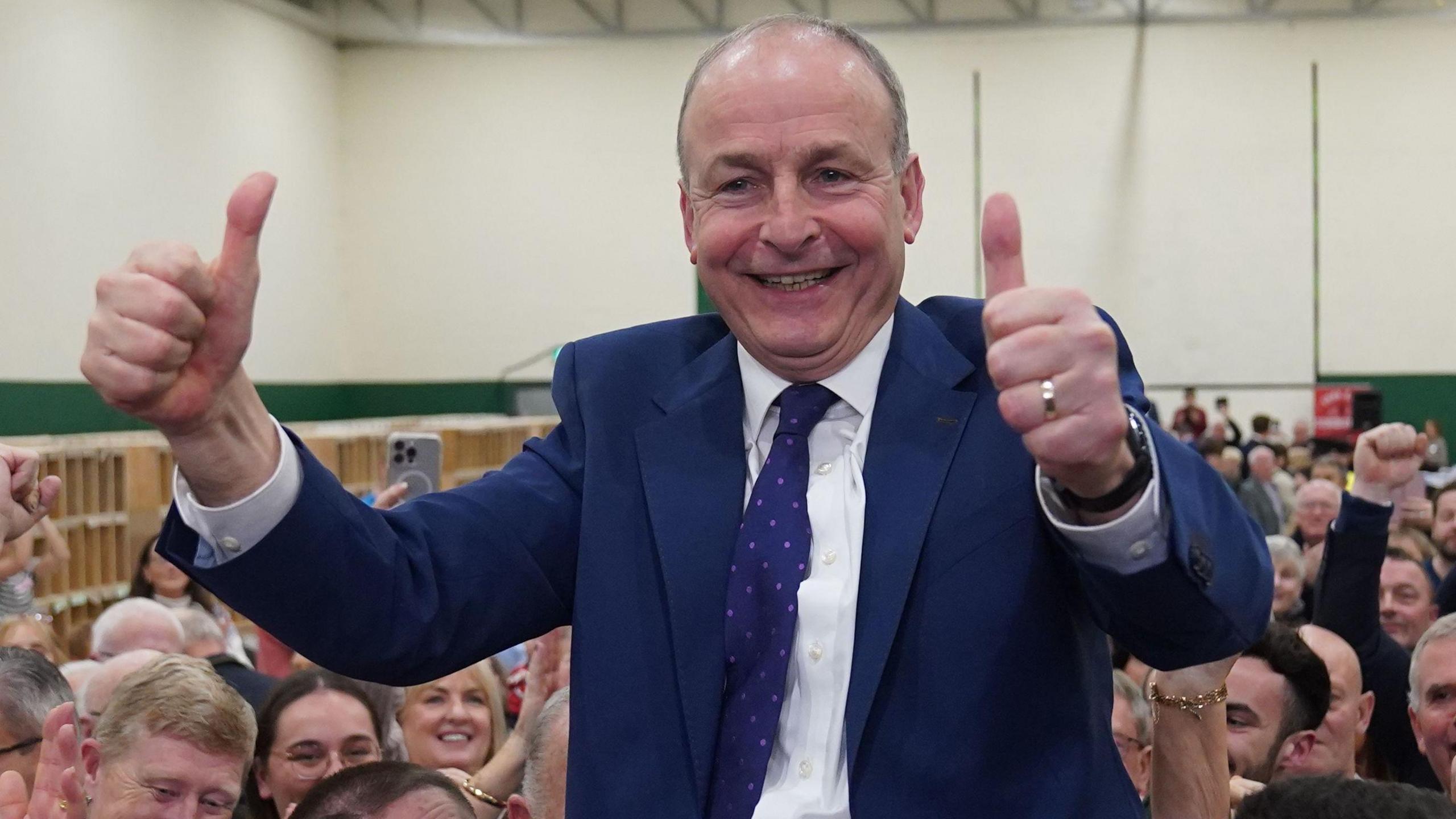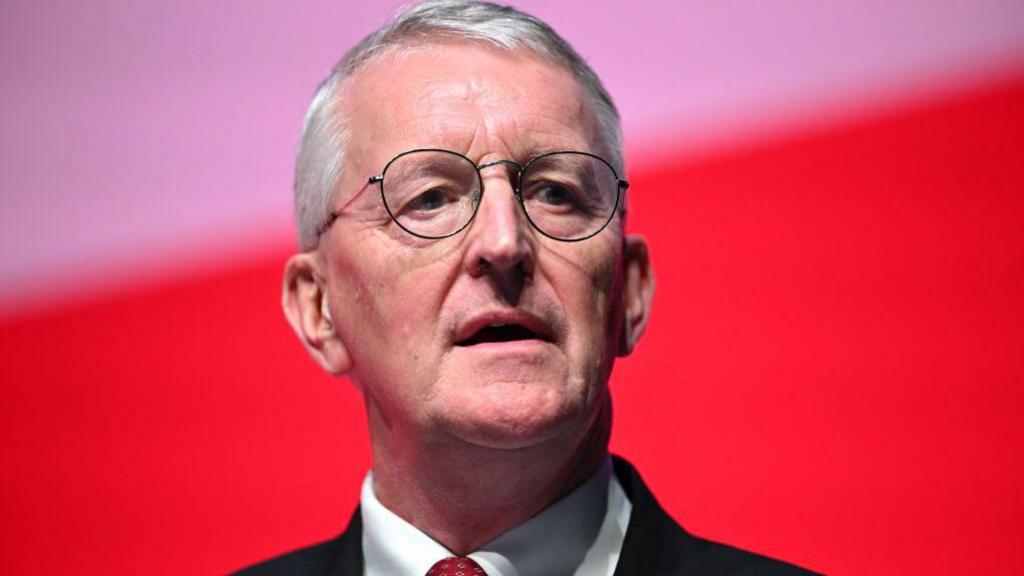Election overshadows British-Irish meeting

Micheál Martin and Hilary Benn both attended the meeting in Dublin
- Published
British and Irish government ministers discussed a range of issues including the Troubles Legacy Act, the Omagh Bombing Inquiry and protecting the Common Travel Area when they met Dublin on Tuesday.
But the British-Irish Intergovernmental Conference (BIIGC) meeting was overshadowed by the Irish general election.
Speaking less than 24 hours after the final results were declared in the election, Fianna Fáil leader Micheál Martin said it is “far too early” to speculate on cabinet positions within the next Irish government.
The caretaker tánaiste (Irish deputy prime minister), who is also the minister for foreign affairs, hosted the latest meeting of the BIIGC.
His party won the most seats in the election but not enough to form a government alone, with talks on forming a coalition set to take place.
His party and Fine Gael agreed to rotate the position of taoiseach (Irish prime minister) in the previous coalition government, each serving half of the five-year term.
No specifics from Martin
Martin said he was not “going to get into specific portfolios” and wanted to respect the negotiation process.
He said that the fundamental issue that would bind parties into a coalition would be policy for an programme for government, and that party leaders would speak to their parliamentary parties on Wednesday.
Martin added that he did not expect a government to be formed before Christmas.
Tuesday's meeting was the first BIIGC attended by Hilary Benn since he became Northern Ireland secretary in July, after Labour won the UK general election.
Benn said he appreciated the warm welcome from the Irish government, and said discussions on legacy and security had been “very useful”.
He also referenced a “reset in relations” between Ireland and the UK and said the Labour government was committed to maintaining that.

Tuesday's meeting was the first BIIGC attended by Northern Ireland Secretary Hilary Benn
Post-Brexit arrangements
A vote on Northern Ireland’s controversial post-Brexit arrangements will go ahead despite a legal bid to block it, Benn said.
He was asked about a challenge that has been initiated in an attempt to prevent the vote from happening next week.
Loyalist activist Jamie Bryson has issued pre-action protocol correspondence to Benn, challenging his move to initiate the democratic consent process that is required under the UK and EU’s Windsor Framework deal.
The vote on extending the current system is expected to take place in the Northern Ireland Assembly on 10 December.
Bryson has warned he will seek an emergency judicial review if Benn does not respond by 5 December confirming he is stopping the process.
Bryson’s argument is grounded on law changes introduced by the previous UK government earlier this year as part of its Safeguarding the Union deal to restore powersharing at Stormont.
He claims that if the amendments achieved their purpose – namely, to safeguard Northern Ireland’s place within the United Kingdom – then it would be unlawful to renew and extend post-Brexit trading arrangements that have created economic barriers between the region and the rest of the UK.
Supreme Court ruling
In 2023, the UK Supreme Court unanimously ruled the trading arrangements for Northern Ireland were lawful.
Speaking at the BIIGC, Benn said the vote would go ahead, after he had started the process in line with his legal obligations.
Known as the democratic consent motion, it was first agreed between the UK and EU in the 2020 Withdrawal Agreement to give Northern Ireland politicians a say in the new post-Brexit trading rules.
The vote is required to take place before 17 December.
But controversially - unlike other votes at Stormont - there is no requirement for cross-community support for the motion. A simple majority will suffice.
The Democratic Unionist Party and other unionist parties have argued the vote creates a democratic deficit as the concerns of unionists who are in the minority at Stormont can be ignored.
The Traditional Unionist voice has said it has written to Northern Ireland’s attorney general seeking legal advice ahead of the vote.
The BIIGC was set up by the Good Friday Agreement to "promote bilateral cooperation at all levels on all matters of mutual interest within the competence of the UK and Irish governments".
- Published2 December 2024

- Published5 July 2024
